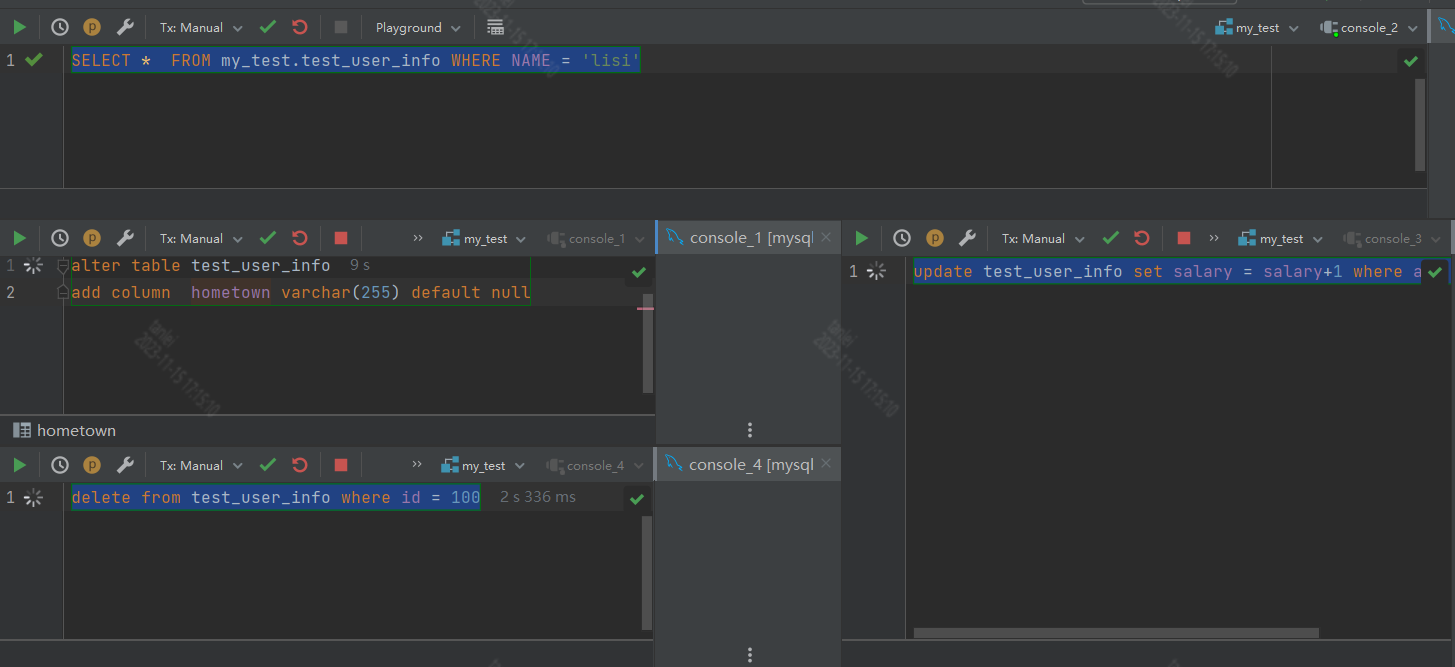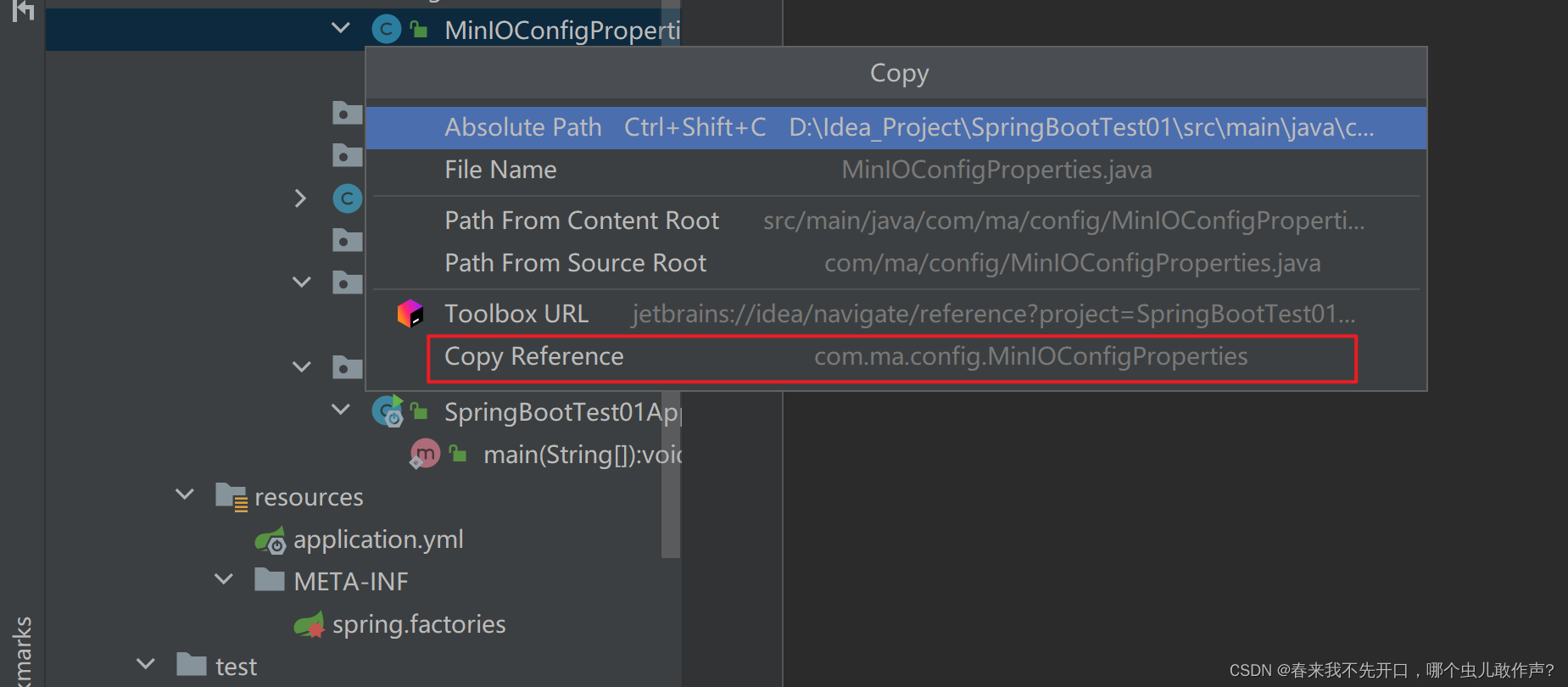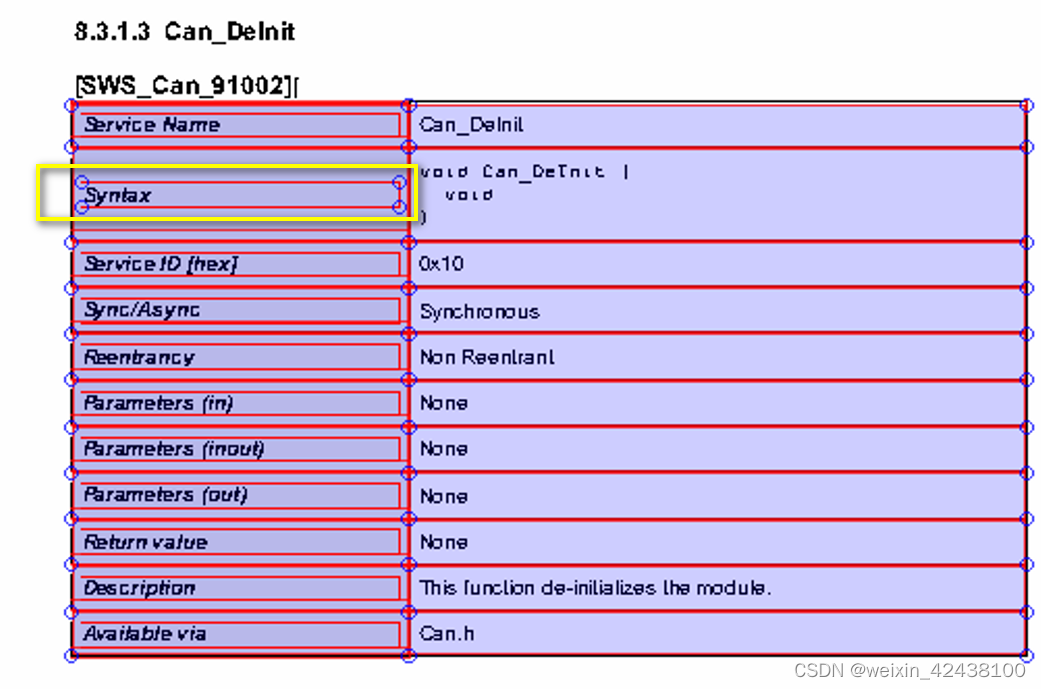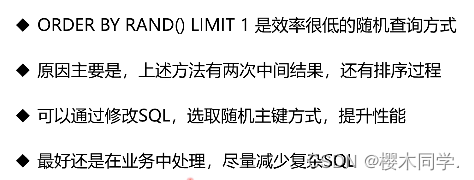一、列表功能
1、列表功能
<!DOCTYPE html>
<html lang="en">
<head>
<meta charset="UTF-8">
<meta name="viewport" content="width=device-width, initial-scale=1.0">
<meta http-equiv="X-UA-Compatible" content="ie=edge">
<title>Document</title>
<script src="https://cdn.jsdelivr.net/npm/vue@2.6.10/dist/vue.js"></script>
<style>
.table {
width: 800px;
margin: 20px auto;
/*合并多个单元格边框*/
border-collapse: collapse;
}
.table th {
background: #0094ff;
color: white;
font-size: 16px;
border: 1px solid black;
padding: 5px;
}
.table tr td {
text-align: center;
font-size: 16px;
padding: 5px;
border: 1px solid black;
}
</style>
</head>
<body>
<div id="app1">
<table class="table">
<th>编号</th>
<th>名称</th>
<th>创建时间</th>
<th>操作</th>
<tr v-for="item in list">
<td>{{item.id}}</td>
<td>{{item.name}}</td>
<td>{{item.ctime}}</td>
<td><a href="#">删除</a></td>
</tr>
</table>
</div>
<script>
var vm = new Vue({
el: '#app1',
data: {
list: [{id: 1, name: '奔驰', ctime: new Date}, {id: 2, name: '大众', ctime: new Date}]
}
});
</script>
</body>
</html>数据是存放在data的list中的,将data中的数据通过
v-for遍历给表格

2、无数据时,增加提示
如果list中没有数据,那么表格中就会只显示表头
<th>,这样显然不太好看为此,我们需要增加一个
v-if判断:当数据为空时,显示提示
<!DOCTYPE html>
<html lang="en">
<head>
<meta charset="UTF-8">
<meta name="viewport" content="width=device-width, initial-scale=1.0">
<meta http-equiv="X-UA-Compatible" content="ie=edge">
<title>Document</title>
<script src="https://cdn.jsdelivr.net/npm/vue@2.6.10/dist/vue.js"></script>
<style>
.table {
width: 800px;
margin: 20px auto;
/*合并多个单元格边框*/
border-collapse: collapse;
}
.table th {
background: #0094ff;
color: white;
font-size: 16px;
border: 1px solid black;
padding: 5px;
}
.table tr td {
text-align: center;
font-size: 16px;
padding: 5px;
border: 1px solid black;
}
</style>
</head>
<body>
<div id="app1">
<table class="table">
<thead>
<tr>
<th>编号</th>
<th>名称</th>
<th>创建时间</th>
<th>操作</th>
</tr>
</thead>
<!-- 在展示前通过v-if判断数据长度是否大于0-->
<tbody v-if="list.length > 0">
<tr v-for="item in list">
<td>{{ item.id }}</td>
<td>{{ item.name }}</td>
<td>{{ item.ctime }}</td>
<td><a href="#">删除</a></td>
</tr>
</tbody>
<!-- 当不大于0时展示无数据-->
<tbody v-else>
<tr>
<td colspan="4">列表无数据</td>
</tr>
</tbody>
</table>
</div>
<script>
var vm = new Vue({
el: '#app1',
data: {
list: [] //清除数据
}
});
</script>
</body>
</html>
colspan="4"指的是让当前这个<td>横跨4个单元格的位置

3、item的添加表格数据
1、用户填写的数据单独存放在data属性里,并采用
v-model进行双向绑定2、用户把数据填好后,点击add按钮。此时需要增加一个点击事件的方法,将data中的数据放到list中(同时,清空文本框中的内容)
3、将数据展示出来。
v-for有个特点:当list数组发生改变后,vue.js就会自动调用v-for重新将数据生成,这样的话,就实现了数据的自动刷新
<!DOCTYPE html>
<html lang="en">
<head>
<meta charset="UTF-8">
<meta name="viewport" content="width=device-width, initial-scale=1.0">
<meta http-equiv="X-UA-Compatible" content="ie=edge">
<title>Document</title>
<script src="https://cdn.jsdelivr.net/npm/vue@2.6.10/dist/vue.js"></script>
<style>
.table {
width: 800px;
margin: 20px auto;
border-collapse: collapse;
}
.table th {
background: #0094ff;
color: white;
font-size: 16px;
border: 1px solid black;
padding: 5px;
}
.table tr td {
text-align: center;
font-size: 16px;
padding: 5px;
border: 1px solid black;
}
.form {
width: 800px;
margin: 20px auto;
}
.form button {
margin-left: 10px;
}
</style>
</head>
<body>
<div id="app1">
<div class="form">
编号:<input type="text" v-model="formData.id">
名称:<input type="text" v-model="formData.name">
<button v-on:click="addData">添加</button>
</div>
<table class="table">
<th>编号</th>
<th>名称</th>
<th>创建时间</th>
<th>操作</th>
<tr v-show="list.length == 0">
<td colspan="4">列表无数据</td>
</tr>
<tr v-for="item in list">
<td>{{item.id}}</td>
<td>{{item.name}}</td>
<td>{{item.ctime}}</td>
<td><a href="#">删除</a></td>
</tr>
</table>
</div>
<script>
var vm = new Vue({
el: '#app1',
data: {
list: [{id: 1, name: '奔驰', ctime: new Date}, {id: 2, name: '大众', ctime: new Date}],
//用户添加的数据
formData: {
id: 0,
name: ""
}
},
methods: {
addData: function () {
//将数据追加到list中
var p = {id: this.formData.id, name: this.formData.name, ctime: new Date()};
this.list.push(p);
//清空页面上的文本框中的数据
this.formData.id = 0;
this.formData.name = '';
}
}
});
</script>
</body>
</html>4、item的删除表格数据
<!DOCTYPE html>
<html lang="en">
<head>
<meta charset="UTF-8">
<meta name="viewport" content="width=device-width, initial-scale=1.0">
<meta http-equiv="X-UA-Compatible" content="ie=edge">
<title>Document</title>
<script src="https://cdn.jsdelivr.net/npm/vue@2.6.10/dist/vue.js"></script>
<style>
.table {
width: 800px;
margin: 20px auto;
border-collapse: collapse;
}
.table th {
background: #0094ff;
color: white;
font-size: 16px;
border: 1px solid black;
padding: 5px;
}
.table tr td {
text-align: center;
font-size: 16px;
padding: 5px;
border: 1px solid black;
}
.form {
width: 800px;
margin: 20px auto;
}
.form button {
margin-left: 10px;
}
</style>
</head>
<body>
<div id="app1">
<div class="form">
编号:
<input type="text" v-model="formData.id"> 名称:
<input type="text" v-model="formData.name">
<button v-on:click="addData">添加</button>
</div>
<table class="table">
<th>编号</th>
<th>名称</th>
<th>创建时间</th>
<th>操作</th>
<tr v-show="list.length == 0">
<td colspan="4">列表无数据</td>
</tr>
<tr v-for="item in list">
<td>{{item.id}}</td>
<td>{{item.name}}</td>
<td>{{item.ctime}}</td>
<!--绑定delete事件,根据括号里的参数进行删除-->
<td>
<a href="#" v-on:click="delData(item.id)">删除</a>
</td>
</tr>
</table>
</div>
<script>
var vm = new Vue({
el: '#app1',
data: {
list: [{ id: 1, name: '奔驰', ctime: new Date }, { id: 2, name: '大众', ctime: new Date }],
formData: {
id: 0,
name: ""
}
},
methods: {
addData: function () {
//将数据追加到list中
var p = { id: this.formData.id, name: this.formData.name, ctime: new Date() };
this.list.push(p);
//清空页面上的文本框中的数据
this.formData.id = 0;
this.formData.name = '';
}, //注意:方法之间用逗号隔开,这个逗号不要忘记了
//添加删除数据函数
delData: function (id) {
//提醒用户是否要删除数据
if (!confirm('是否要删除数据?')) {
//当用户点击的取消按钮的时候,应该阻断这个方法中的后面代码的继续执行
return;
}
//调用list.findIndex()方法根据传入的id获取到这个要删除数据的索引值
var index = this.list.findIndex(function (item) {
return item.id == id
});
//调用方法:list.splice(待删除的索引, 删除的元素个数)
this.list.splice(index, 1);
}
}
});
</script>
</body>
</html>5:按条件筛选item
我们要实现的效果是,在搜索框输入关键字 keywords,列表中仅显示匹配出来的内容
也就是说之前 v-for 中的数据,都是直接从 data 上的list中直接渲染过来的
现在我们在使用
v-for进行遍历显示的时候,不能再遍历全部的 list 了;我们要自定义一个 search 方法,同时,把keywords作为参数,传递给 search 方法。即v-for="item in search(keywords)"
在 search(keywords) 方法中,为了获取 list 数组中匹配的item,我们可以使用filter + includes()方法
案例
search(keywords) { // 根据关键字,进行数据的搜索,返回匹配的item
var newList = this.list.filter(item => {
// 注意 : ES6中,为字符串提供了一个新方法,叫做 String.prototype.includes('要包含的字符串')
// 如果包含,则返回 true ,否则返回 false
if (item.name.includes(keywords)) {
return item
}
})
return newList
}完整代码
<!DOCTYPE html>
<html lang="en">
<head>
<meta charset="UTF-8">
<meta name="viewport" content="width=device-width, initial-scale=1.0">
<meta http-equiv="X-UA-Compatible" content="ie=edge">
<title>Document</title>
<script src="https://cdn.jsdelivr.net/npm/vue@2.6.10/dist/vue.js"></script>
<style>
.table {
width: 800px;
margin: 20px auto;
border-collapse: collapse;
}
.table th {
background: #0094ff;
color: white;
font-size: 16px;
border: 1px solid black;
padding: 5px;
}
.table tr td {
text-align: center;
font-size: 16px;
padding: 5px;
border: 1px solid black;
}
.form {
width: 800px;
margin: 20px auto;
}
.form button {
margin-left: 10px;
}
</style>
</head>
<body>
<div id="app1">
<div class="form">
编号:
<input type="text" v-model="formData.id"> 名称:
<input type="text" v-model="formData.name">
<button v-on:click="addData">添加</button>
搜索:
<input type="text" v-model="keywords">
</div>
<table class="table">
<th>编号</th>
<th>名称</th>
<th>创建时间</th>
<th>操作</th>
<tr v-show="list.length == 0">
<td colspan="4">列表无数据</td>
</tr>
<tr v-for="item in search(keywords)">
<td>{{item.id}}</td>
<td>{{item.name}}</td>
<td>{{item.ctime}}</td>
<!--绑定delete事件,根据括号里的参数进行删除-->
<td>
<a href="#" v-on:click="delData(item.id)">删除</a>
</td>
</tr>
</table>
</div>
<script>
var vm = new Vue({
el: '#app1',
data: {
list: [{ id: 1, name: '奔驰', ctime: new Date }, { id: 2, name: '大众', ctime: new Date }],
//用户添加的数据
formData: {
id: '',
name: ""
},
keywords: ""
},
methods: {
addData: function () {
//将数据追加到list中
var p = { id: this.formData.id, name: this.formData.name, ctime: new Date() };
this.list.push(p);
//清空页面上的文本框中的数据
this.formData.id = '';
this.formData.name = '';
}, //注意:方法之间用逗号隔开,这个逗号不要忘记了
delData: function (id) {
// 0 提醒用户是否要删除数据
if (!confirm('是否要删除数据?')) {
//当用户点击的取消按钮的时候,应该阻断这个方法中的后面代码的继续执行
return;
}
// 1 调用list.findIndex()方法根据传入的id获取到这个要删除数据的索引值
var index = this.list.findIndex(function (item) {
return item.id == id
});
// 2 调用方法:list.splice(待删除的索引, 删除的元素个数)
this.list.splice(index, 1);
},
search(keywords) { // 根据关键字,进行数据的搜索,返回匹配的item
var newList = this.list.filter(item => {
// 注意 : ES6中,为字符串提供了一个新方法,叫做 String.prototype.includes('要包含的字符串')
// 如果包含,则返回 true ,否则返回 false
if (item.name.includes(keywords)) {
return item
}
})
return newList
}
}
});
</script>
</body>
</html> 
二、自定义过滤器
Vue.js 允许我们自定义过滤器,可被用作一些常见的文本格式化
过滤器可以用在两种表达式中,mustache 插值表达式和 v-bind表达式
过滤器应该被添加在 JavaScript 表达式的尾部,由“管道”符指示
#官方文档
http://v1-cn.vuejs.org/guide/custom-filter.html我们可以用全局方法
Vue.filter()自定义一个全局过滤器。这样的话,每一个Vue的对象实例(每一个VM实例)都可以拿到这个过滤器。 他需要接受两个参数(过滤器名称、过滤器函数)
比如说,我要将 (曾经,我也是一个单纯的少年,单纯的我,傻傻的问,谁是世界上最单纯的男人) 这句 msg 中的“单纯”改为“邪恶”
1、定义插值表达式的方法
<p>{{ msg | msgFormat }</p>
#说明
#1、管道符前面的msg是要把msg这段文本进行过滤
#2、管道符后面的msgFormat,是通过msgFormat这个过滤器进行来操作2、定义过滤器函数
// Vue.filter 中的第一个参数是过滤器的名称,第二个参数是具体的过滤器函数
// 定义一个 Vue 全局的过滤器,名字叫做 msgFormat
Vue.filter('msgFormat', function (myMsg) { // function 的第一个参数指的是管道符前面的 msg
// 字符串的 replace 方法,第一个参数,除了可写一个 字符串之外,还可以定义一个正则
return myMsg.replace(/单纯/g, '邪恶')
})
//说明
//1、 上面代码中Vue.filter(‘过滤器的名称’, 具体的过滤器函数)`中的
//第一个参数指的就是过滤器的名称,他必须和管道符后面的名称完全一致
//第二个参数是具体的过滤器函数
//2、过滤器函数function中,第一个参数指的管道符前面的msg
//3、replace()方法是用来做字符串的替换的。第一个参数如果只写成单纯
//那么就会只修改 msg 中的第一个`单纯`字样。所以这里就用正则去匹配msg 中所有的`单纯`字样3、案例
<!DOCTYPE html>
<html lang="en">
<head>
<meta charset="UTF-8">
<meta name="viewport" content="width=device-width, initial-scale=1.0">
<meta http-equiv="X-UA-Compatible" content="ie=edge">
<title>Document</title>
<script src="https://cdn.jsdelivr.net/npm/vue@2.6.10/dist/vue.js"></script>
<style>
.table {
width: 800px;
margin: 20px auto;
border-collapse: collapse;
}
.table th {
background: #0094ff;
color: white;
font-size: 16px;
border: 1px solid black;
padding: 5px;
}
.table tr td {
text-align: center;
font-size: 16px;
padding: 5px;
border: 1px solid black;
}
.form {
width: 800px;
margin: 20px auto;
}
.form button {
margin-left: 10px;
}
</style>
</head>
<body>
<div id="app1">
<!-- 通过 过滤器 msgFormat 对 msg 进行过滤-->
<p>{{ msg | msgFormat }}</p>
</div>
<script>
// 定义一个 Vue 全局的过滤器,名字叫做 msgFormat
Vue.filter('msgFormat', function (myMsg) {
// 字符串的 replace 方法,第一个参数,除了可写一个 字符串之外,还可以定义一个正则
//将 myMsg 中的所有`单纯`字样,修改为`邪恶`
return myMsg.replace(/单纯/g, '邪恶')
})
var vm = new Vue({
el: '#app1',
data: {
msg: '曾经,我也是一个单纯的少年,单纯的我,傻傻的问,谁是世界上最单纯的男人'
},
methods: {}
});
</script>
</body>
</html>后续我们可以通过这个方法,将请求api返回的json数据,取出他们的名称,比如name然后转换成其他的中文名称展示

三、给过滤器添加多个参数
上面的举例代码中,`{{ msg | msgFormat }}`中,过滤器的调用并没有加参数,其实它还可以添加多个参数,接下来我们基于上面的代码进行改进
1、过滤器加一个参数
#原代码
<p>{{ msg | msgFormat }}</p>
#修改后
#在插值表达式中添加一个参数
<p>{{ msg | msgFormat('xxx') }}</p>在插值表达式中添加携带参数后,也需要在过滤器函数中,添加(myMsg, arg2) 中的arg2就是接受传参,如下
// 定义一个 Vue 全局的过滤器,名字叫做 msgFormat
Vue.filter('msgFormat', function (myMsg, arg2) {
// 字符串的 replace 方法:第一个参数,除了可写一个 字符串之外,还可以定义一个正则;第二个参数代表要替换为上面的xxx
//将 myMsg 中的所有`单纯`字样,修改为 arg2
return myMsg.replace(/单纯/g, arg2)
})
全量代码
<!DOCTYPE html>
<html lang="en">
<head>
<meta charset="UTF-8">
<meta name="viewport" content="width=device-width, initial-scale=1.0">
<meta http-equiv="X-UA-Compatible" content="ie=edge">
<title>Document</title>
<script src="https://cdn.jsdelivr.net/npm/vue@2.6.10/dist/vue.js"></script>
<style>
.table {
width: 800px;
margin: 20px auto;
border-collapse: collapse;
}
.table th {
background: #0094ff;
color: white;
font-size: 16px;
border: 1px solid black;
padding: 5px;
}
.table tr td {
text-align: center;
font-size: 16px;
padding: 5px;
border: 1px solid black;
}
.form {
width: 800px;
margin: 20px auto;
}
.form button {
margin-left: 10px;
}
</style>
</head>
<body>
<div id="app1">
<!-- 通过 过滤器 msgFormat 对 msg 进行过滤-->
<p>{{ msg | msgFormat('xxx') }}</p>
</div>
<script>
// 定义一个 Vue 全局的过滤器,名字叫做 msgFormat
Vue.filter('msgFormat', function (myMsg, arg2) {
// 字符串的 replace 方法:第一个参数,除了可写一个 字符串之外,还可以定义一个正则;第二个参数代表要替换为上面的xxx
//将 myMsg 中的所有`单纯`字样,修改为 arg2
return myMsg.replace(/单纯/g, arg2)
})
var vm = new Vue({
el: '#app1',
data: {
msg: '曾经,我也是一个单纯的少年,单纯的我,傻傻的问,谁是世界上最单纯的男人'
},
methods: {}
});
</script>
</body>
</html>
2、过滤器加两个参数
<!DOCTYPE html>
<html lang="en">
<head>
<meta charset="UTF-8">
<meta name="viewport" content="width=device-width, initial-scale=1.0">
<meta http-equiv="X-UA-Compatible" content="ie=edge">
<title>Document</title>
<script src="https://cdn.jsdelivr.net/npm/vue@2.6.10/dist/vue.js"></script>
<style>
.table {
width: 800px;
margin: 20px auto;
border-collapse: collapse;
}
.table th {
background: #0094ff;
color: white;
font-size: 16px;
border: 1px solid black;
padding: 5px;
}
.table tr td {
text-align: center;
font-size: 16px;
padding: 5px;
border: 1px solid black;
}
.form {
width: 800px;
margin: 20px auto;
}
.form button {
margin-left: 10px;
}
</style>
</head>
<body>
<div id="app1">
<!-- 通过 过滤器 msgFormat 对 msg 进行过滤-->
<!-- 【重要】括号里的第一个参数代表 function 中的 arg2,括号里的第二个参数代表 function 中的 arg3-->
<p>{{ msg | msgFormat('【牛x】', '【参数arg3】') }}</p>
</div>
<script>
// 定义一个 Vue 全局的过滤器,名字叫做 msgFormat
Vue.filter('msgFormat', function (myMsg, arg2, arg3) {
// 字符串的 replace 方法:第一个参数,除了可写一个 字符串之外,还可以定义一个正则;第二个参数代表要替换为 xxx
//将 myMsg 中的所有`单纯`字样,修改为`arg2 + arg3`
return myMsg.replace(/单纯/g, arg2 + arg3)
})
var vm = new Vue({
el: '#app1',
data: {
msg: '曾经,我也是一个单纯的少年,单纯的我,傻傻的问,谁是世界上最单纯的男人'
},
methods: {}
});
</script>
</body>
</html> 
3、同时使用多个过滤器
<!DOCTYPE html>
<html lang="en">
<head>
<meta charset="UTF-8">
<meta name="viewport" content="width=device-width, initial-scale=1.0">
<meta http-equiv="X-UA-Compatible" content="ie=edge">
<title>Document</title>
<script src="https://cdn.jsdelivr.net/npm/vue@2.6.10/dist/vue.js"></script>
<style>
.table {
width: 800px;
margin: 20px auto;
border-collapse: collapse;
}
.table th {
background: #0094ff;
color: white;
font-size: 16px;
border: 1px solid black;
padding: 5px;
}
.table tr td {
text-align: center;
font-size: 16px;
padding: 5px;
border: 1px solid black;
}
.form {
width: 800px;
margin: 20px auto;
}
.form button {
margin-left: 10px;
}
</style>
</head>
<body>
<div id="app1">
<!-- 通过 两个过滤器(msgFormat、myFilter2)对 msg 进行过滤-->
<!-- 将 msg 交给第一个过滤器来处理,然后将处理的结果交给第二个过滤器来处理-->
<p>{{ msg | msgFormat('【牛x】', '【参数arg3】') | myFilter2}}</p>
</div>
<script>
// 定义一个 Vue 全局的过滤器,名字叫做 msgFormat
Vue.filter('msgFormat', function (myMsg, arg2, arg3) {
// 字符串的 replace 方法:第一个参数,除了可写一个 字符串之外,还可以定义一个正则;第二个参数代表要替换为 xxx
//将 myMsg 中的所有`单纯`字样,修改为`arg2 + arg3`
return myMsg.replace(/单纯/g, arg2 + arg3)
})
//定义第二个全局过滤器
Vue.filter('myFilter2', function (myMsg) {
//在字符串 msg 的最后面加上【后缀】
return myMsg + '【后缀】'
})
var vm = new Vue({
el: '#app1',
data: {
msg: '曾经,我也是一个单纯的少年,单纯的我,傻傻的问,谁是世界上最单纯的男人'
},
methods: {}
});
</script>
</body>
</html>
添加了多个过滤器,是将 msg 交给第一个过滤器来处理,然后将处理的结果交给第二个过滤器来处理 。
4、时间格式化 案例1
<!DOCTYPE html>
<html lang="en">
<head>
<meta charset="UTF-8">
<meta name="viewport" content="width=device-width, initial-scale=1.0">
<meta http-equiv="X-UA-Compatible" content="ie=edge">
<title>Document</title>
<script src="https://cdn.jsdelivr.net/npm/vue@2.6.10/dist/vue.js"></script>
<style>
.table {
width: 800px;
margin: 20px auto;
border-collapse: collapse;
}
.table th {
background: #0094ff;
color: white;
font-size: 16px;
border: 1px solid black;
padding: 5px;
}
.table tr td {
text-align: center;
font-size: 16px;
padding: 5px;
border: 1px solid black;
}
.form {
width: 800px;
margin: 20px auto;
}
.form button {
margin-left: 10px;
}
</style>
</head>
<body>
<div id="app1">
{{ time }}
<br /> {{ time | datefmt }}
</div>
<div id="app2">
{{ time | datefmt }}
</div>
<script>
// 定义一个名称为 datafmt的全局过滤器
Vue.filter('datefmt', function (input) {
// 过滤器的逻辑:将input的值格式化成 yyyy-MM-dd 字符串输出
var res = '';
var year = input.getFullYear();
var month = input.getMonth() + 1;
var day = input.getDate();
res = year + '-' + month + '-' + day;
return res;
});
new Vue({
el: '#app1',
data: {
time: new Date()
}
})
new Vue({
el: '#app2',
data: {
time: new Date()
}
});
</script>
</body>
</html>
5、时间格式化 案例2
<!DOCTYPE html>
<html lang="en">
<head>
<meta charset="UTF-8">
<meta name="viewport" content="width=device-width, initial-scale=1.0">
<meta http-equiv="X-UA-Compatible" content="ie=edge">
<title>Document</title>
<script src="https://cdn.jsdelivr.net/npm/vue@2.6.10/dist/vue.js"></script>
</head>
<body>
<div id="app1">
2018-05-25T14:06:51.618Z
<br /> {{ '2018-05-25T14:06:51.618Z' | dateFormat }}
</div>
<script>
Vue.filter('dateFormat', function (dateStr, pattern = "") {
// 根据给定的时间字符串,得到特定的时间
var dt = new Date(dateStr)
// yyyy-mm-dd
var y = dt.getFullYear()
var m = dt.getMonth() + 1
var d = dt.getDate()
// return y + '-' + m + '-' + d
if (pattern.toLowerCase() === 'yyyy-mm-dd') { //如果调用过滤器的参数写的是 yyyy-mm-dd,那就按照这种 yyyy-mm-dd 的格式写
//这里用的是字符串模板
return `${y}-${m}-${d}`
} else { //否则(比如说调用过滤器时不写参数),后面就补上 时-分-秒
var hh = dt.getHours()
var mm = dt.getMinutes()
var ss = dt.getSeconds()
return `${y}-${m}-${d} ${hh}:${mm}:${ss}`
}
})
new Vue({
el: '#app1',
data: {
time: new Date()
}
});
</script>
</body>
</html>6、时间格式化 案例3
<!DOCTYPE html>
<html lang="en">
<head>
<meta charset="UTF-8">
<meta name="viewport" content="width=device-width, initial-scale=1.0">
<meta http-equiv="X-UA-Compatible" content="ie=edge">
<title>Document</title>
<script src="https://cdn.jsdelivr.net/npm/vue@2.6.10/dist/vue.js"></script>
</head>
<body>
<div id="app1">
2018-05-25T14:06:51.618Z
<br /> {{ '2018-05-25T14:06:51.618Z' | dateFormat }}
</div>
<script>
Vue.filter('dateFormat', function (dateStr, pattern) {
// 根据给定的时间字符串,得到特定的时间
var dt = new Date(dateStr)
// yyyy-mm-dd
var y = dt.getFullYear()
var m = (dt.getMonth() + 1).toString().padStart(2, '0')
var d = dt.getDate().toString().padStart(2, '0')
if (pattern && pattern.toLowerCase() === 'yyyy-mm-dd') { //如果调用过滤器的参数写的是 yyyy-mm-dd,那就按照这种 yyyy-mm-dd 的格式写
//这里用的是字符串模板
return `${y}-${m}-${d}`
} else { //否则(比如说调用过滤器时不写参数),后面就补上 时-分-秒
var hh = dt.getHours().toString().padStart(2, '0')
var mm = dt.getMinutes().toString().padStart(2, '0')
var ss = dt.getSeconds().toString().padStart(2, '0')
return `${y}-${m}-${d} ${hh}:${mm}:${ss} ~~~~~~~`
}
})
new Vue({
el: '#app1',
data: {
time: new Date()
}
});
</script>
</body>
</html>四 、自定义私有过滤器
私有过滤器:在某一个 vue 对象内部定义的过滤器称之为私有过滤器。这种过滤器只有在当前vue对象的el指定的监管区域有用。
案例 日期格式化
<!DOCTYPE html>
<html lang="en">
<head>
<meta charset="UTF-8">
<meta name="viewport" content="width=device-width, initial-scale=1.0">
<meta http-equiv="X-UA-Compatible" content="ie=edge">
<title>Document</title>
<script src="https://cdn.jsdelivr.net/npm/vue@2.6.10/dist/vue.js"></script>
</head>
<body>
<div id="app1">
{{ time }}
<br />
{{ time | datefmt }}
</div>
<script>
new Vue({
el: '#app1',
data: {
time: new Date()
},
//在某一个vue对象内部定义的过滤器称之为私有过滤器,
//这种过滤器只有在当前vue对象el指定的监管的区域有用
filters: {
// input是自定义过滤器的默认参数,input的值永远都是取自于 | 左边的内容
datefmt: function (input) {
// 定义过滤器的内容:将input的值格式化成 yyyy-MM-dd 字符串输出
var res = '';
var year = input.getFullYear();
var month = input.getMonth() + 1;
var day = input.getDate();
res = year + '-' + month + '-' + day;
return res;
}
}
});
</script>
</body>
</html>
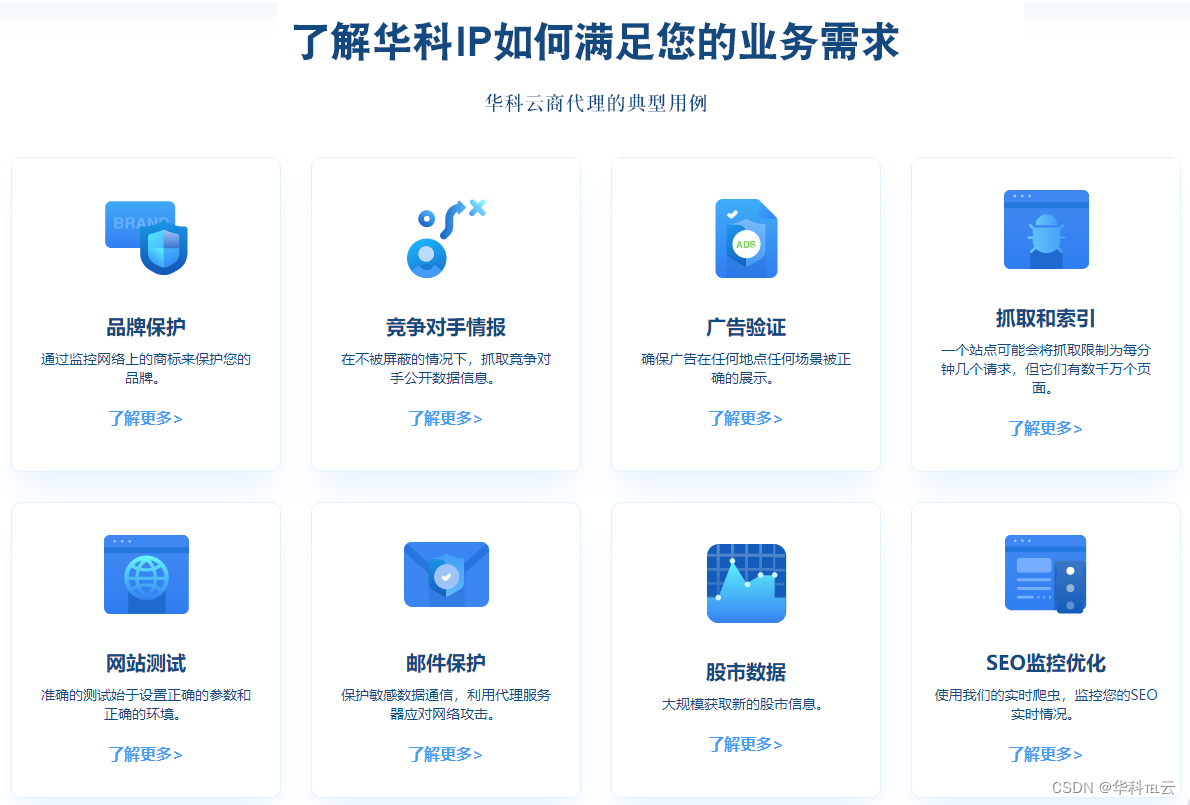
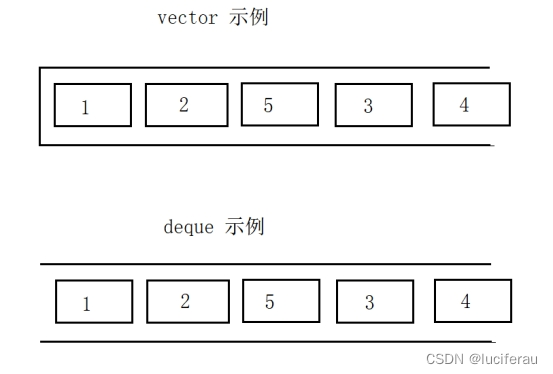


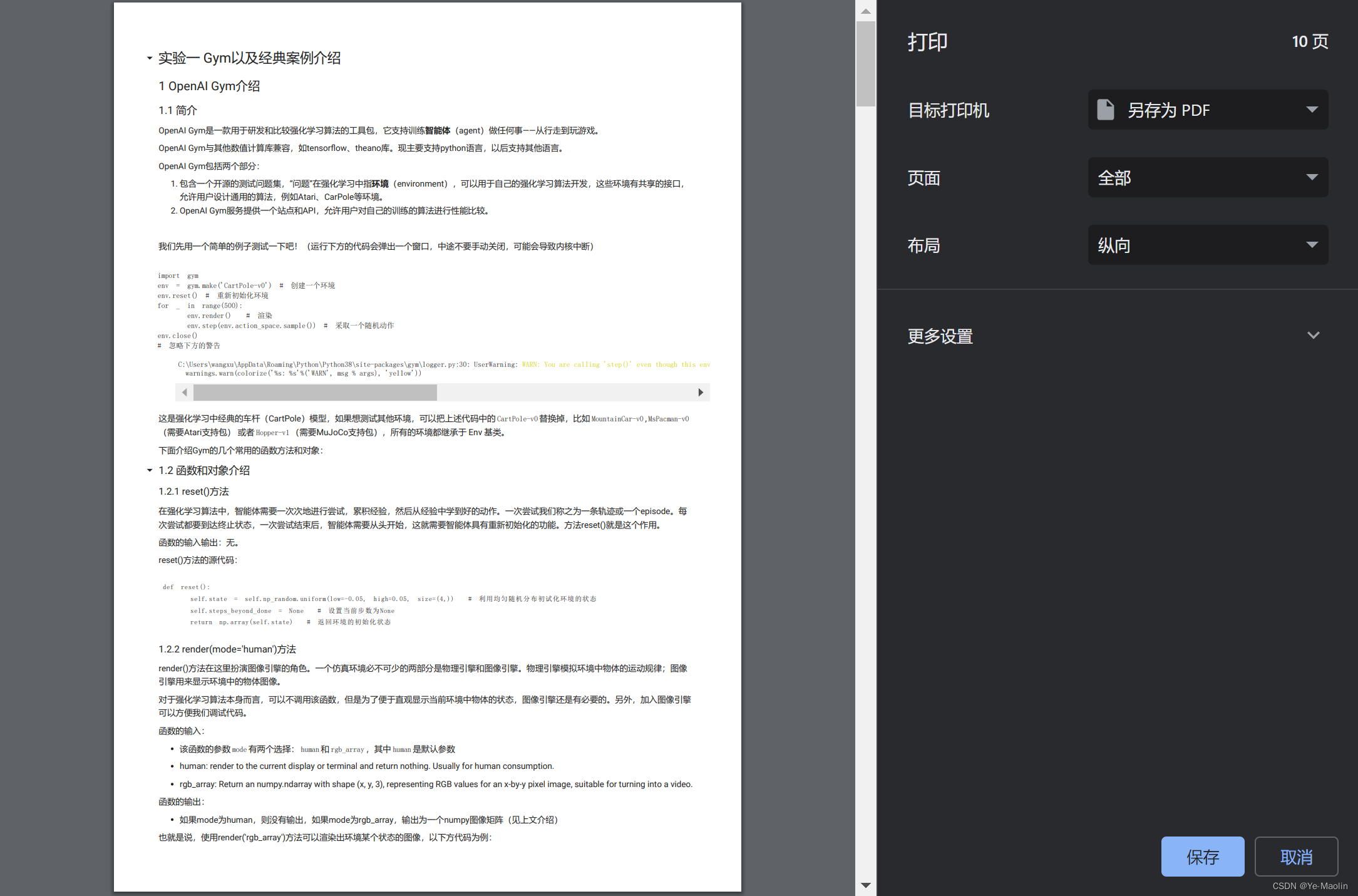
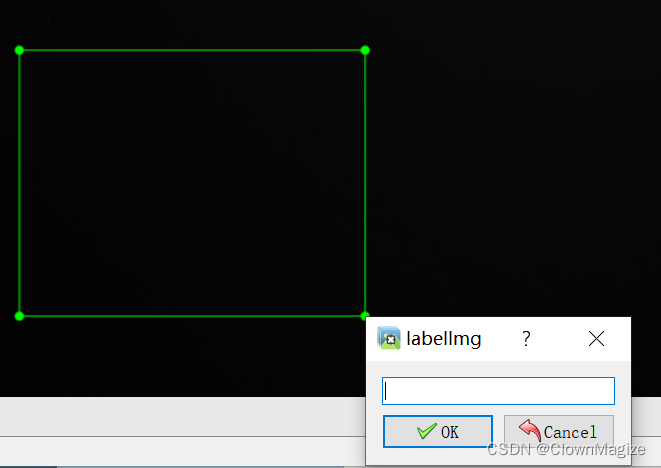
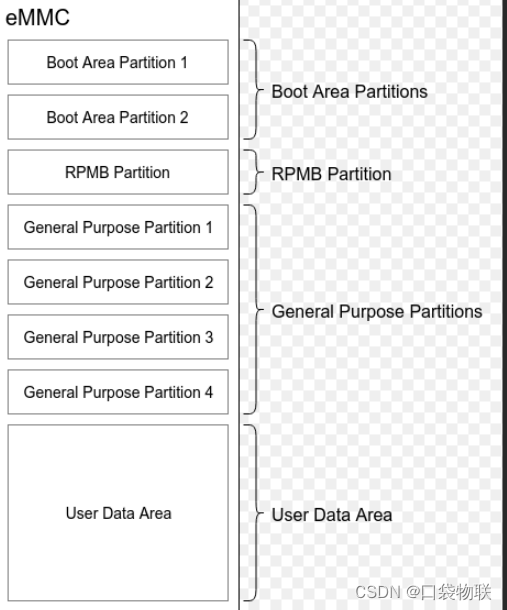
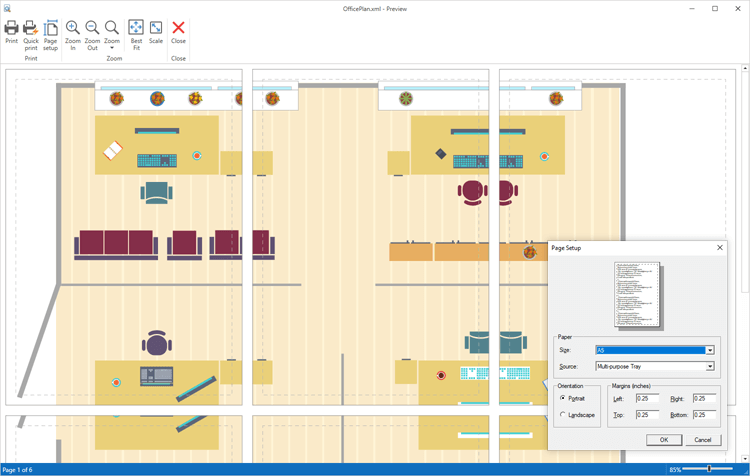






二叉树的中序遍历](https://img-blog.csdnimg.cn/e5d3b577ed2c4a45a5150adbc8dd7a9e.png)

